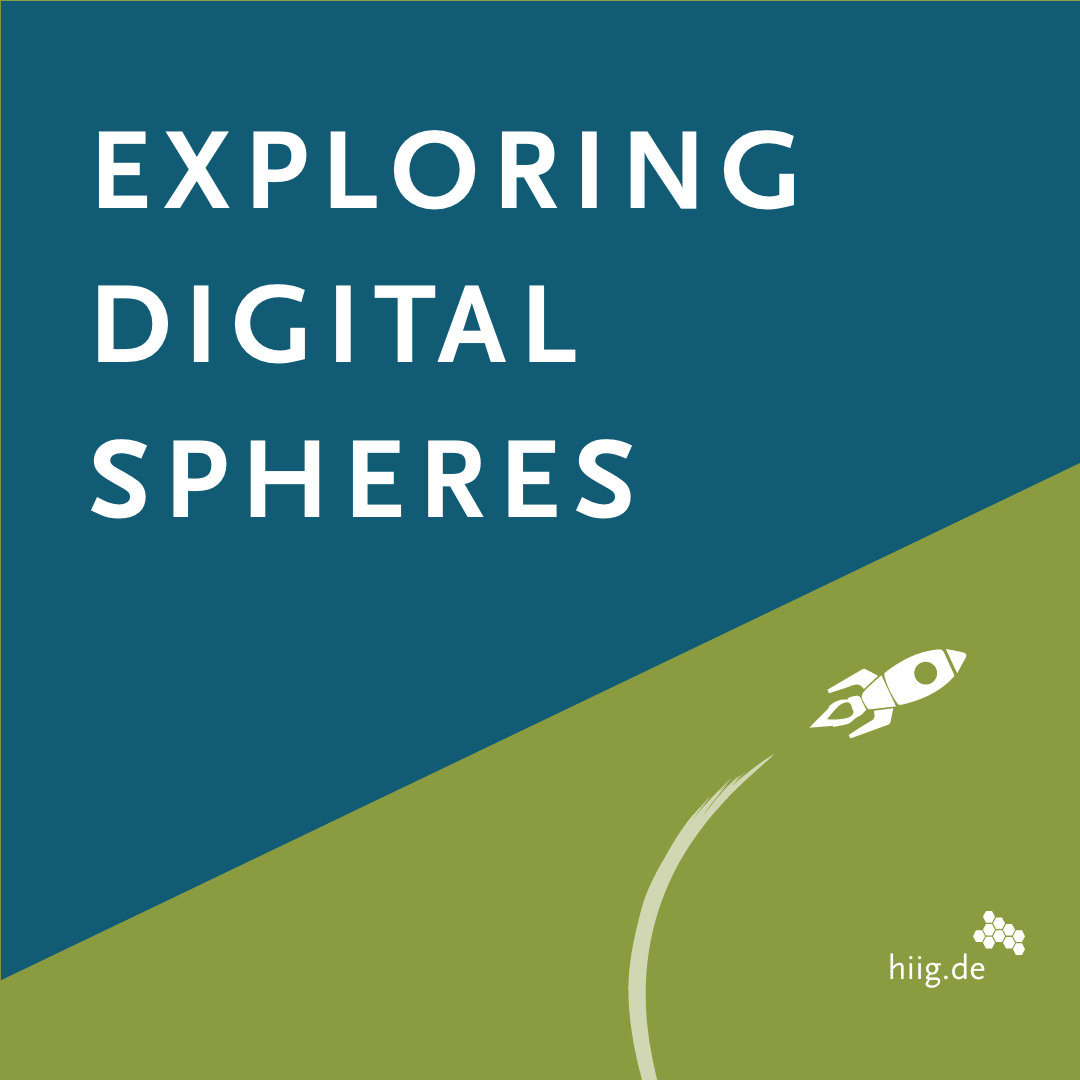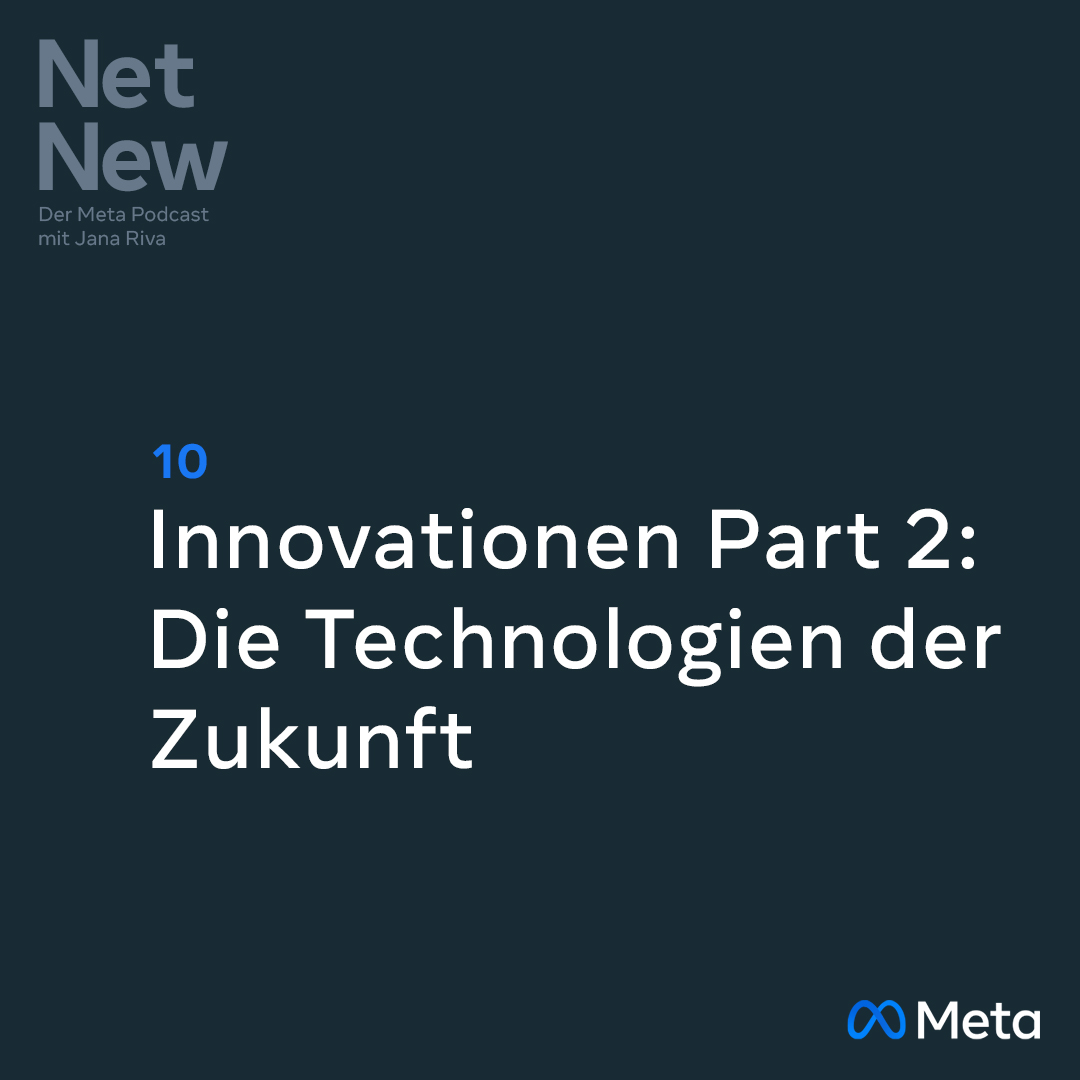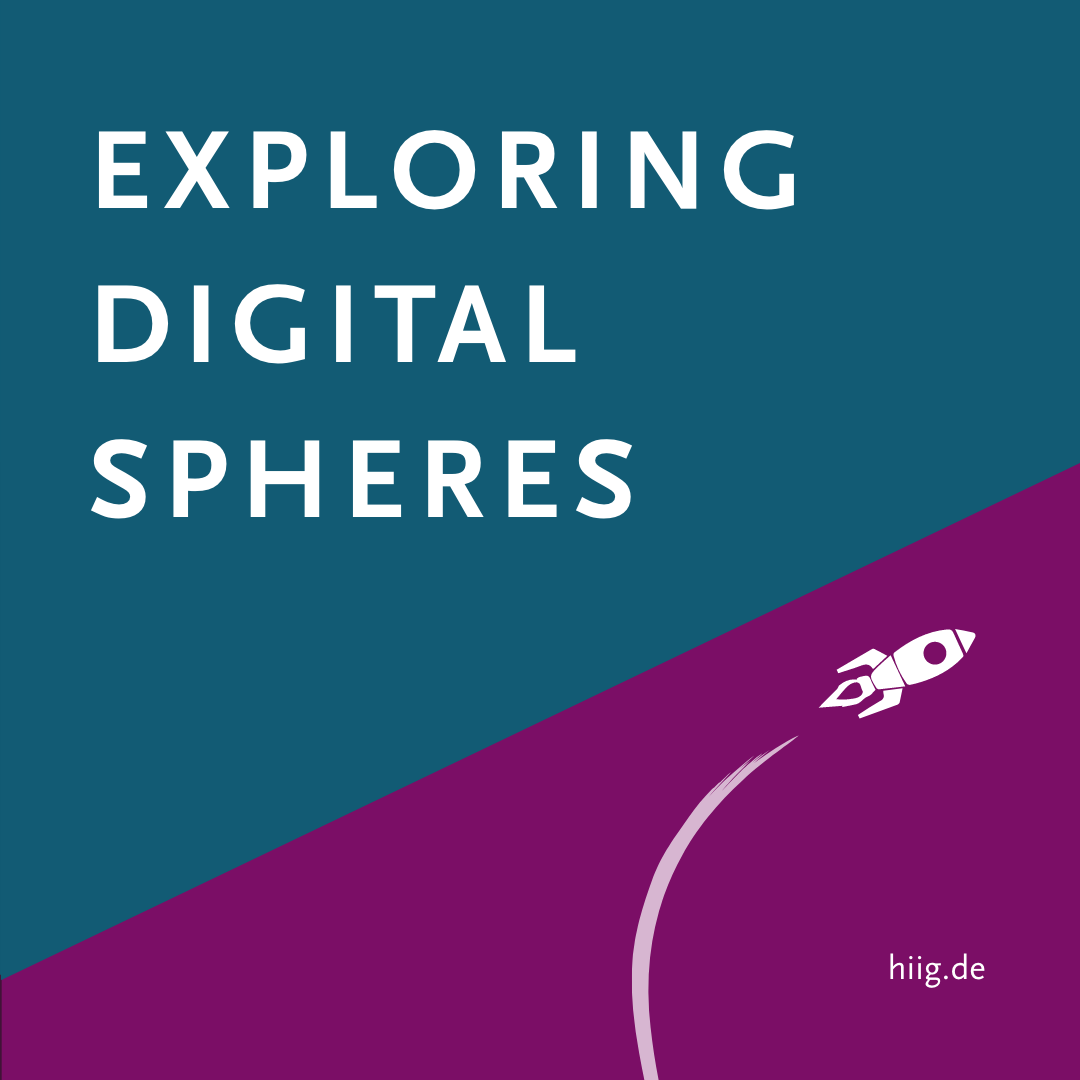Shows
 The OII Podcast (Oxford Internet Institute)Jobs of the future: Dr Fabian Stephany and El-Iza MohamedouThe future of work in an AI-driven world, whether these new technologies help or hurt the labour market, and what employees should be doing to future-proof their skills, with Dr Fabian Stephany (Oxford Internet Institute) and El-Iza Mohamedou (OECD). In the fourth episode of the OII Podcast, our experts discuss topics such as:
- How AI is affecting the labour market and reshaping the skills landscape in the world of work
- How employers can support employees with upskilling and training to ensure workforce capabilities stay relevant
- The disproportionate impact of new technologies on existing socioeconomic and geographic inequalities...2025-01-1635 min
The OII Podcast (Oxford Internet Institute)Jobs of the future: Dr Fabian Stephany and El-Iza MohamedouThe future of work in an AI-driven world, whether these new technologies help or hurt the labour market, and what employees should be doing to future-proof their skills, with Dr Fabian Stephany (Oxford Internet Institute) and El-Iza Mohamedou (OECD). In the fourth episode of the OII Podcast, our experts discuss topics such as:
- How AI is affecting the labour market and reshaping the skills landscape in the world of work
- How employers can support employees with upskilling and training to ensure workforce capabilities stay relevant
- The disproportionate impact of new technologies on existing socioeconomic and geographic inequalities...2025-01-1635 min The OII Podcast (Oxford Internet Institute)Jobs of the future: Dr Fabian Stephany and El-Iza MohamedouThe future of work in an AI-driven world, whether these new technologies help or hurt the labour market, and what employees should be doing to future-proof their skills, with Dr Fabian Stephany (Oxford Internet Institute) and El-Iza Mohamedou (OECD). In the fourth episode of the OII Podcast, our experts discuss topics such as:
- How AI is affecting the labour market and reshaping the skills landscape in the world of work
- How employers can support employees with upskilling and training to ensure workforce capabilities stay relevant
- The disproportionate impact of new technologies on existing socioeconomic and geographic inequalities...2024-12-1635 min
The OII Podcast (Oxford Internet Institute)Jobs of the future: Dr Fabian Stephany and El-Iza MohamedouThe future of work in an AI-driven world, whether these new technologies help or hurt the labour market, and what employees should be doing to future-proof their skills, with Dr Fabian Stephany (Oxford Internet Institute) and El-Iza Mohamedou (OECD). In the fourth episode of the OII Podcast, our experts discuss topics such as:
- How AI is affecting the labour market and reshaping the skills landscape in the world of work
- How employers can support employees with upskilling and training to ensure workforce capabilities stay relevant
- The disproportionate impact of new technologies on existing socioeconomic and geographic inequalities...2024-12-1635 min The Sound of EconomicsCan/Should robots look after the young and the old?The future of work has become a prominent topic for research and policy debate. However, the debate has focused entirely on paid work, even though people in industrialised countries spend on average comparable amounts of time on unpaid work. This ranges from simple daily chores like sweeping the floor and cooking, to more complicated and controversial issues like robots looking after kids or the elderly.
In this episode of The Sound of Economics, Giuseppe Porcaro sits down with Ekaterina Hertog and Fabian Stephany to investigate the road less travelled, Ekaterina’s research on the potential and the willingness of...2023-11-0842 min
The Sound of EconomicsCan/Should robots look after the young and the old?The future of work has become a prominent topic for research and policy debate. However, the debate has focused entirely on paid work, even though people in industrialised countries spend on average comparable amounts of time on unpaid work. This ranges from simple daily chores like sweeping the floor and cooking, to more complicated and controversial issues like robots looking after kids or the elderly.
In this episode of The Sound of Economics, Giuseppe Porcaro sits down with Ekaterina Hertog and Fabian Stephany to investigate the road less travelled, Ekaterina’s research on the potential and the willingness of...2023-11-0842 min Exploring Digital SpheresS02 E03: Exploring Kenya's gig work opportunities
Digital platforms are fundamentally changing the world of work. While the platform economy opens immense opportunities for flexible, gainful and convenient entrepreneurship, the precarious livelihoods of workers and service providers often remain unaddressed.
Right after our Multi-stakeholder dialogue in November 2022 in Nairobi, SET-researchers Marie Blüml and Fabian Stephany talked with Tom Kwanya, the main author of our study on gig platform regulations in Kenya, and Teresios Bundi, gig work researcher and member of Kenyan gig workers union to discuss possible pathways towards a fairer online platform economy in Kenya. Find out which opportunities gig work can offer and w...2023-04-2734 min
Exploring Digital SpheresS02 E03: Exploring Kenya's gig work opportunities
Digital platforms are fundamentally changing the world of work. While the platform economy opens immense opportunities for flexible, gainful and convenient entrepreneurship, the precarious livelihoods of workers and service providers often remain unaddressed.
Right after our Multi-stakeholder dialogue in November 2022 in Nairobi, SET-researchers Marie Blüml and Fabian Stephany talked with Tom Kwanya, the main author of our study on gig platform regulations in Kenya, and Teresios Bundi, gig work researcher and member of Kenyan gig workers union to discuss possible pathways towards a fairer online platform economy in Kenya. Find out which opportunities gig work can offer and w...2023-04-2734 min Digitaler SalonVon Gig zu GigÜber die Zukunft der Plattformarbeit
Gigwork, Crowdwork, Cloudwork – die Arbeit in der Plattformökonomie hat viele Namen. Das gemeinsame Kennzeichen: Arbeitgeber und Erwerbstätige kommen auf digitalen Plattformen meist für kleinere oder zeitlich begrenzte Arbeitsaufträge – auch ‘Gigs’ genannt – zusammen (z.B. Lieferbotinnen, Designerinnen oder Entwicklerinnen). Die Beschäftigung über Gigs ermöglicht vielen Erwerbstätigen – gerade in ökonomischen Schwellenländern – eine neue Form von flexiblem und selbstbestimmten Einkommen. Oftmals ist Plattformarbeit aber noch immer von unsicheren Verhältnissen, Mangel an Fairness und kurzen Befristungen gekennzeichnet. Gig-Workerinnen sind überwiegend vom Wohlwollen der Plattformbetreiber*innen abhängig oder ungeschützt der undurchsichtigen Kont...2023-04-061h 12
Digitaler SalonVon Gig zu GigÜber die Zukunft der Plattformarbeit
Gigwork, Crowdwork, Cloudwork – die Arbeit in der Plattformökonomie hat viele Namen. Das gemeinsame Kennzeichen: Arbeitgeber und Erwerbstätige kommen auf digitalen Plattformen meist für kleinere oder zeitlich begrenzte Arbeitsaufträge – auch ‘Gigs’ genannt – zusammen (z.B. Lieferbotinnen, Designerinnen oder Entwicklerinnen). Die Beschäftigung über Gigs ermöglicht vielen Erwerbstätigen – gerade in ökonomischen Schwellenländern – eine neue Form von flexiblem und selbstbestimmten Einkommen. Oftmals ist Plattformarbeit aber noch immer von unsicheren Verhältnissen, Mangel an Fairness und kurzen Befristungen gekennzeichnet. Gig-Workerinnen sind überwiegend vom Wohlwollen der Plattformbetreiber*innen abhängig oder ungeschützt der undurchsichtigen Kont...2023-04-061h 12 The Sound of EconomicsWhy are remote jobs only happening in the cities?Since the outbreak of the COVID-19 pandemic, a record number of people have begun to work from home. However, the seeming flexibility of remote positions is not without its limitations, since the spatial distribution of such roles is vastly uneven.
In this episode of The Sound of Economics, Giuseppe Porcaro is joined by Fabian Stephany and Monica Stephens to explore how remote work contributes to continued urbanisation. They give special focus to the importance of digital infrastructure and the proximity of service providers, as well as the gendered dimensions of working from home and how this can affect p...2023-04-0534 min
The Sound of EconomicsWhy are remote jobs only happening in the cities?Since the outbreak of the COVID-19 pandemic, a record number of people have begun to work from home. However, the seeming flexibility of remote positions is not without its limitations, since the spatial distribution of such roles is vastly uneven.
In this episode of The Sound of Economics, Giuseppe Porcaro is joined by Fabian Stephany and Monica Stephens to explore how remote work contributes to continued urbanisation. They give special focus to the importance of digital infrastructure and the proximity of service providers, as well as the gendered dimensions of working from home and how this can affect p...2023-04-0534 min Net New - Der Meta Podcast#10 Innovationen Part 2: die Technologien der Zukunft
„Alles, was erfunden werden kann, wurde bereits erfunden.“, davon war Charles H. Duell, der Chef des amerikanischen Patentamts, 1899 felsenfest überzeugt. Heute können wir über eine solche Aussage nur lachen und wissen genau: was für eine kolossale Fehleinschätzung! In diesem Staffelfinale von „Net New - Der Metapodcast” werfen wir gemeinsam mit Jana Riva erneut einen Blick in die Zukunft! Wir leben in einer Zeit, in der sich der technologische Fortschritt exponentiell weiterentwickelt. Jeden Tag entstehen neue Innovationen, die anhand von verschiedensten Kombinationsmöglichkeiten mit bestehenden Technologien wiederum zur nächsten Neuheit führen. Gerade unsere Arbeitswelt hat dabei durch vers...2023-01-1926 min
Net New - Der Meta Podcast#10 Innovationen Part 2: die Technologien der Zukunft
„Alles, was erfunden werden kann, wurde bereits erfunden.“, davon war Charles H. Duell, der Chef des amerikanischen Patentamts, 1899 felsenfest überzeugt. Heute können wir über eine solche Aussage nur lachen und wissen genau: was für eine kolossale Fehleinschätzung! In diesem Staffelfinale von „Net New - Der Metapodcast” werfen wir gemeinsam mit Jana Riva erneut einen Blick in die Zukunft! Wir leben in einer Zeit, in der sich der technologische Fortschritt exponentiell weiterentwickelt. Jeden Tag entstehen neue Innovationen, die anhand von verschiedensten Kombinationsmöglichkeiten mit bestehenden Technologien wiederum zur nächsten Neuheit führen. Gerade unsere Arbeitswelt hat dabei durch vers...2023-01-1926 min The Sound of EconomicsThe dominance of the platform economyThe Internet was supposed to liberate us from powerful institutions. But the reality might be he who fights too long against dragons becomes a dragon himself. In this episode of the Sound of Economics, Giuseppe Porcaro and Fabian Stephany invite Vili Lehdonvirta to present his latest book, Cloud Empires, where he explains how Silicon Valley technologists end up recreating digital forms of the very institutions that they were trying to render obsolete. They also discuss the labour market.
This podcast was produced within the project “Future of Work and Inclusive Growth in Europe“, with the financial support of the...2022-11-0239 min
The Sound of EconomicsThe dominance of the platform economyThe Internet was supposed to liberate us from powerful institutions. But the reality might be he who fights too long against dragons becomes a dragon himself. In this episode of the Sound of Economics, Giuseppe Porcaro and Fabian Stephany invite Vili Lehdonvirta to present his latest book, Cloud Empires, where he explains how Silicon Valley technologists end up recreating digital forms of the very institutions that they were trying to render obsolete. They also discuss the labour market.
This podcast was produced within the project “Future of Work and Inclusive Growth in Europe“, with the financial support of the...2022-11-0239 min 𝔽𝕒𝕓𝕚𝕒𝕟’𝕤 ℝ𝕠𝕠𝕞Fabian's Room EP 5 Ft @Stephany blocked her after gta, piping up our friends, sugar daddy's and moreHope you guys enjoy the episode even though there were some minor things that went wrong. Please make sure to like and subscribe it really helps the channel out. Make sure to follow Stephany on insta down below https://www.instagram.com/wheres_stephany/And of course if you want more content here are the links to my other socials https://www.instagram.com/fabianherrerajr/ https://twitter.com/fabianherrerajr Please like, comment and share this it really helps me and the channel out and I'll see you in the next video.2022-05-2656 min
𝔽𝕒𝕓𝕚𝕒𝕟’𝕤 ℝ𝕠𝕠𝕞Fabian's Room EP 5 Ft @Stephany blocked her after gta, piping up our friends, sugar daddy's and moreHope you guys enjoy the episode even though there were some minor things that went wrong. Please make sure to like and subscribe it really helps the channel out. Make sure to follow Stephany on insta down below https://www.instagram.com/wheres_stephany/And of course if you want more content here are the links to my other socials https://www.instagram.com/fabianherrerajr/ https://twitter.com/fabianherrerajr Please like, comment and share this it really helps me and the channel out and I'll see you in the next video.2022-05-2656 min The Sound of EconomicsOnline labour: Can we all just move to Tahiti?The internet is changing the way we work. In this episode, Giuseppe Porcaro is joined by Laura Nurski and Fabian Stephany to discuss the utilisation of online work across countries and occupations, what it means for the society, and how policymakers should better regulate it.
This podcast was produced within the project “Future of Work and Inclusive Growth in Europe“, with the financial support of the Mastercard Center for Inclusive Growth.
2022-03-2335 min
The Sound of EconomicsOnline labour: Can we all just move to Tahiti?The internet is changing the way we work. In this episode, Giuseppe Porcaro is joined by Laura Nurski and Fabian Stephany to discuss the utilisation of online work across countries and occupations, what it means for the society, and how policymakers should better regulate it.
This podcast was produced within the project “Future of Work and Inclusive Growth in Europe“, with the financial support of the Mastercard Center for Inclusive Growth.
2022-03-2335 min BE:CURIOUS – A Podcast by the Oxford/Berlin Research Partnership#1 From Covid to Gentrification – Using Big Data to Help Wider SocietyEvery day through our computers and devices, a myriad of apps and services track our behaviour in precise detail. Most of this information is collected and analysed by companies that are trying to sell us things; whether it’s Amazon trying to sell us products, or Google looking to sell ads that are precisely targeted to us as individuals. But could this wealth of data also be used in ways that actually benefit wider society? That’s what economists and data-scientists Fabian Braesemann and Fabian Stephany are hoping to do with DWG, a Berlin-based company that they are curre...2022-02-1532 min
BE:CURIOUS – A Podcast by the Oxford/Berlin Research Partnership#1 From Covid to Gentrification – Using Big Data to Help Wider SocietyEvery day through our computers and devices, a myriad of apps and services track our behaviour in precise detail. Most of this information is collected and analysed by companies that are trying to sell us things; whether it’s Amazon trying to sell us products, or Google looking to sell ads that are precisely targeted to us as individuals. But could this wealth of data also be used in ways that actually benefit wider society? That’s what economists and data-scientists Fabian Braesemann and Fabian Stephany are hoping to do with DWG, a Berlin-based company that they are curre...2022-02-1532 min Avory - Markets and InvestingGig Economy w/ Oxford Internet Institute, With Takes on Fiverr and UpworkThe internet has blurred the lines between the online and offline workforce. At Avory we calculate that there is roughly $700B in paid workers that could move some or all of their work to online platforms. We brought Fabian Stephany from the Oxford Internet Institute "OII" at the University of Oxford to discuss this revolution.
iLabour Website: https://ilabour.oii.ox.ac.uk/online-labour-index Fabians Twitter: https://twitter.com/fabian_stephany
Disclaimer: Avory & Co. is a registered investment adviser and the opinions expressed by Avory & Co. on this show a...2021-09-2124 min
Avory - Markets and InvestingGig Economy w/ Oxford Internet Institute, With Takes on Fiverr and UpworkThe internet has blurred the lines between the online and offline workforce. At Avory we calculate that there is roughly $700B in paid workers that could move some or all of their work to online platforms. We brought Fabian Stephany from the Oxford Internet Institute "OII" at the University of Oxford to discuss this revolution.
iLabour Website: https://ilabour.oii.ox.ac.uk/online-labour-index Fabians Twitter: https://twitter.com/fabian_stephany
Disclaimer: Avory & Co. is a registered investment adviser and the opinions expressed by Avory & Co. on this show a...2021-09-2124 min Operator ModeGig Economy w/ Oxford Internet Institute, With Takes on Fiverr and UpworkThe internet has blurred the lines between the online and offline workforce. At Avory we calculate that there is roughly $700B in paid workers that could move some or all of their work to online platforms. We brought Fabian Stephany from the Oxford Internet Institute "OII" at the University of Oxford to discuss this revolution.
iLabour Website: https://ilabour.oii.ox.ac.uk/online-labour-index Fabians Twitter: https://twitter.com/fabian_stephany
Disclaimer: Avory & Co. is a registered investment adviser and the opinions expressed by Avory & Co. on this show a...2021-09-2124 min
Operator ModeGig Economy w/ Oxford Internet Institute, With Takes on Fiverr and UpworkThe internet has blurred the lines between the online and offline workforce. At Avory we calculate that there is roughly $700B in paid workers that could move some or all of their work to online platforms. We brought Fabian Stephany from the Oxford Internet Institute "OII" at the University of Oxford to discuss this revolution.
iLabour Website: https://ilabour.oii.ox.ac.uk/online-labour-index Fabians Twitter: https://twitter.com/fabian_stephany
Disclaimer: Avory & Co. is a registered investment adviser and the opinions expressed by Avory & Co. on this show a...2021-09-2124 min Conversations avec un article#20. Les travailleurs mexicains du code informatiqueEpisode 20 : Les travailleurs mexicains du code informatique
L'article original :
Héctor Beltrán, "Code Work: Thinking with the System in México", American Anthropologist, n°122 (3), 2020.
---------
Les références citées dans l'article et mobilisées implicitement ou explicitement dans le podcast :
Mitchell, Timothy Mitchell, Rule of Experts: Egypt, Techno-Politics, Modernity, University of California Press, 2002.
Henrietta L. Moore, “Concept-Metaphors and Pre-Theoretical Commitment inAnthropology.” Anthropological Theory, 4(1), p. 71– 88, 2004.
---------
Pour aller plus loin :
**Sur les codeurs**
Sébastien Broca, "Le mouvement du logiciel libre contre l'impensé informatique ? Apports et limites d'une critique interne de l'informatique" dans Pascal Robert (dir.), L'Impensé numérique, t.1, Des an...2021-02-1017 min
Conversations avec un article#20. Les travailleurs mexicains du code informatiqueEpisode 20 : Les travailleurs mexicains du code informatique
L'article original :
Héctor Beltrán, "Code Work: Thinking with the System in México", American Anthropologist, n°122 (3), 2020.
---------
Les références citées dans l'article et mobilisées implicitement ou explicitement dans le podcast :
Mitchell, Timothy Mitchell, Rule of Experts: Egypt, Techno-Politics, Modernity, University of California Press, 2002.
Henrietta L. Moore, “Concept-Metaphors and Pre-Theoretical Commitment inAnthropology.” Anthropological Theory, 4(1), p. 71– 88, 2004.
---------
Pour aller plus loin :
**Sur les codeurs**
Sébastien Broca, "Le mouvement du logiciel libre contre l'impensé informatique ? Apports et limites d'une critique interne de l'informatique" dans Pascal Robert (dir.), L'Impensé numérique, t.1, Des an...2021-02-1017 min Exploring Digital Spheres"CoRisk Index"An economic indicator of industry-specific risk assessments related to Covid-19
In a collaborative project researchers from Oxford and Berlin developed an index as the first economic indicator of industry-specific risk assessments related to Covid-19, based on financial disclosures of US companies. The index can provide valuable real-time information about economic risks associated with the pandemic, and it has already been featured in Oxford University News, the Washington Post, and the Wirtschaftswoche.
In today's special episode we welcome the data scientists Dr. Fabian Stephany and Dr. Fabian Braesemann from the University of Oxford. The two speak with HIIG Ph.D. student...2020-06-0218 min
Exploring Digital Spheres"CoRisk Index"An economic indicator of industry-specific risk assessments related to Covid-19
In a collaborative project researchers from Oxford and Berlin developed an index as the first economic indicator of industry-specific risk assessments related to Covid-19, based on financial disclosures of US companies. The index can provide valuable real-time information about economic risks associated with the pandemic, and it has already been featured in Oxford University News, the Washington Post, and the Wirtschaftswoche.
In today's special episode we welcome the data scientists Dr. Fabian Stephany and Dr. Fabian Braesemann from the University of Oxford. The two speak with HIIG Ph.D. student...2020-06-0218 min Streitbar – Der liberale Debattenpodcast der Friedrich-Naumann-StiftungStreitbar Extra mit Cihat Cengiz und Fabian Stephany: Wie unsere Stipendiaten den Kampf gegen Corona aufnehmenDer liberale Debattenpodcast der Friedrich-Naumann-Stiftung
Cihat Cengiz ist Ingenieur, Fabian Stephany Ökonom. Einer arbeitet in Oxford, einer in Cambridge. Auf den ersten Blick haben die beiden Wissenschaftler wenig gemein. Doch ein zweiter Blick lohnt, denn beide arbeiten mit ihren Teams an spannenden Initiativen, die helfen sollen, die Corona-Pandemie in den Griff zu kriegen. Und beide haben eine enge Beziehung zur Friedrich-Naumann-Stiftung. Cihat Cengiz, derzeit Stipendiat der Stiftung, ist Teil einer Gruppe von Forschern, die innerhalb kürzester Zeit ein Beatmungsgerät entwickelt haben, das günstig produziert werden kann und so vor allem für Schwellen- und Entwicklungsländer attraktiv ersche...2020-05-2741 min
Streitbar – Der liberale Debattenpodcast der Friedrich-Naumann-StiftungStreitbar Extra mit Cihat Cengiz und Fabian Stephany: Wie unsere Stipendiaten den Kampf gegen Corona aufnehmenDer liberale Debattenpodcast der Friedrich-Naumann-Stiftung
Cihat Cengiz ist Ingenieur, Fabian Stephany Ökonom. Einer arbeitet in Oxford, einer in Cambridge. Auf den ersten Blick haben die beiden Wissenschaftler wenig gemein. Doch ein zweiter Blick lohnt, denn beide arbeiten mit ihren Teams an spannenden Initiativen, die helfen sollen, die Corona-Pandemie in den Griff zu kriegen. Und beide haben eine enge Beziehung zur Friedrich-Naumann-Stiftung. Cihat Cengiz, derzeit Stipendiat der Stiftung, ist Teil einer Gruppe von Forschern, die innerhalb kürzester Zeit ein Beatmungsgerät entwickelt haben, das günstig produziert werden kann und so vor allem für Schwellen- und Entwicklungsländer attraktiv ersche...2020-05-2741 min Operator ModeThe Digital Workforce with University of Oxford's Fabian StephanyThe internet has blurred the lines between the online and offline workforce. At Avory we calculate that there is roughly $700B in paid workers that could move some or all of their work to online platforms. We brought Fabian Stephany from the Oxford Internet Institute "OII" at the University of Oxford to discuss this revolution. Fabian is working on the iLabour Project at the OII studying the global dynamics of Online Labour Markets.
Fabian holds a PhD and degrees in Economics and Social Sciences from different European institutions, including Universitá Bocconi Milan and University of Cambridge.
iLabour Website: https://ilabour.o...2020-05-2625 min
Operator ModeThe Digital Workforce with University of Oxford's Fabian StephanyThe internet has blurred the lines between the online and offline workforce. At Avory we calculate that there is roughly $700B in paid workers that could move some or all of their work to online platforms. We brought Fabian Stephany from the Oxford Internet Institute "OII" at the University of Oxford to discuss this revolution. Fabian is working on the iLabour Project at the OII studying the global dynamics of Online Labour Markets.
Fabian holds a PhD and degrees in Economics and Social Sciences from different European institutions, including Universitá Bocconi Milan and University of Cambridge.
iLabour Website: https://ilabour.o...2020-05-2625 min Avory - Markets and InvestingThe Digital Workforce with University of Oxford's Fabian StephanyThe internet has blurred the lines between the online and offline workforce. At Avory we calculate that there is roughly $700B in paid workers that could move some or all of their work to online platforms. We brought Fabian Stephany from the Oxford Internet Institute "OII" at the University of Oxford to discuss this revolution. Fabian is working on the iLabour Project at the OII studying the global dynamics of Online Labour Markets.
Fabian holds a PhD and degrees in Economics and Social Sciences from different European institutions, including Universitá Bocconi Milan and University of Cambridge.
iLabour Website: https://ilabour.o...2020-05-2625 min
Avory - Markets and InvestingThe Digital Workforce with University of Oxford's Fabian StephanyThe internet has blurred the lines between the online and offline workforce. At Avory we calculate that there is roughly $700B in paid workers that could move some or all of their work to online platforms. We brought Fabian Stephany from the Oxford Internet Institute "OII" at the University of Oxford to discuss this revolution. Fabian is working on the iLabour Project at the OII studying the global dynamics of Online Labour Markets.
Fabian holds a PhD and degrees in Economics and Social Sciences from different European institutions, including Universitá Bocconi Milan and University of Cambridge.
iLabour Website: https://ilabour.o...2020-05-2625 min